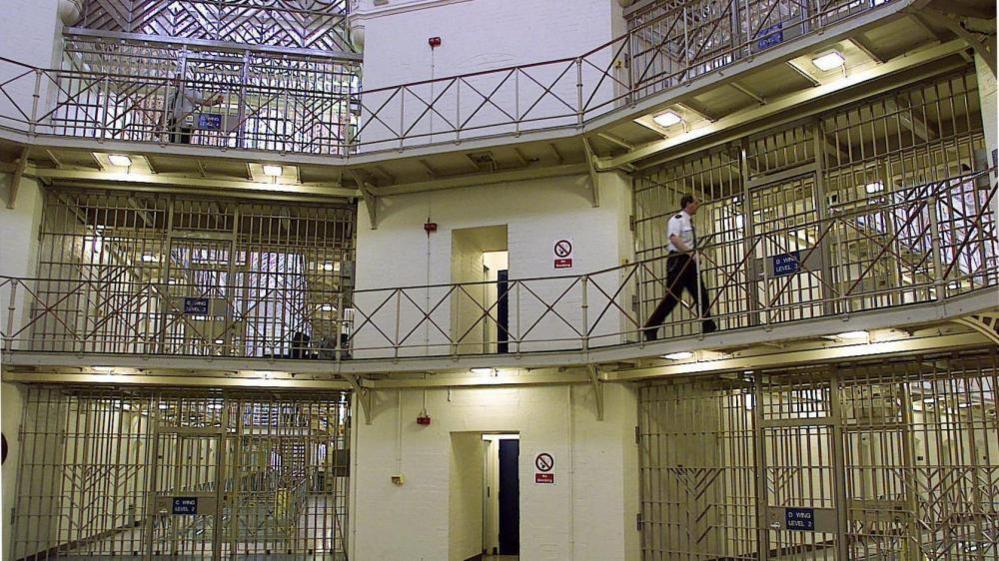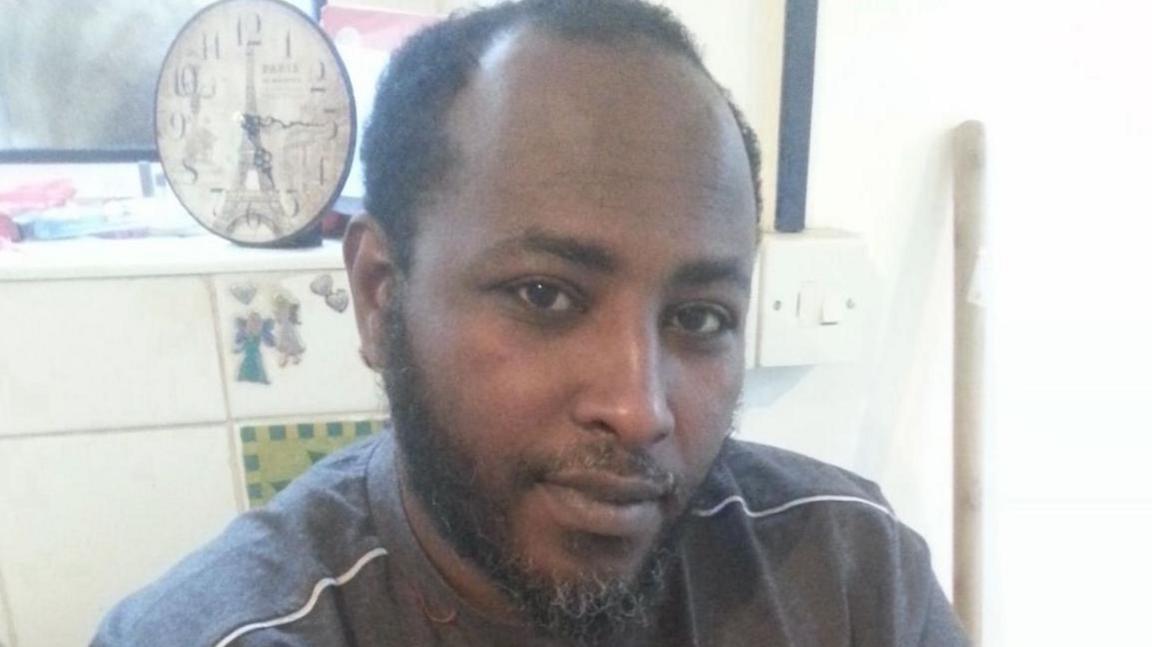Prisoner took own life after being denied parole

Tyrone Richards had "spent most of his adult life" in prison from the age of 15
- Published
A prisoner serving a controversial indefinite Imprisonment for Public Protection (IPP) sentence took his own life at HMP Manchester after being denied parole, a watchdog has found.
Tyrone Richards, who at 32 had spent "most of his teenage years and adult life" behind bars, was found in his cell on 25 October 2022.
New IPP sentences were scrapped in 2012 but for people already sentenced they remain in place.
The sentences mean a prisoner must remain behind bars for a minimum term and then indefinitely until a parole board deems them fit to be released on licence.
An inquest later concluded Mr Richards died by hanging.
In February 2010, Mr Richards was sentenced to an IPP with a minimum term of two years and 163 days for wounding with intent to cause grievous bodily harm.
A Fatal Incident Report into the matter was compiled by the Prisons and Probation Ombudsman (PPO), which conducts an independent investigation whenever anyone dies in custody in England and Wales.
It noted that in 2016 and 2018, Mr Richards had been released from prison on licence after being granted parole but was recalled both times due to poor behaviour.
He was transferred to Manchester from HMP Lindholme in South Yorkshire on 8 July 2022 and screened by staff, who found no indication of significant mental health issues.
On 1 September 2022 he was told his latest bid for parole had been denied, the report noted, and he was required to remain in prison for at least another two years.
'Risk factors'
PPO Adrian Usher wrote in the report that on 23 September, Mr Richards was assaulted by another prisoner, which staff suspected was related to debt owed to his attacker.
Mr Usher said Mr Richards was one of a "record number of prisoners serving Imprisonment for Public Protection (IPP) to take their lives in 2022".
As of July 2024, around 2,800 people were still serving IPPs.
The sentences were scrapped, partly due to the severe impact on the mental health of prisoners who were lingering in jail with no release date for many years after the expiration of their minimum term.
Mr Usher said Mr Richards had a "history of self-harm and attempted suicide".
However, he wrote: "While he also had other risk factors for suicide and self-harm, we are satisfied that there was little to indicate that he was at heightened risk in the time before his death."
He noted Mr Richards was not prioritised for key work, a scheme intended to help prisoners integrate into prison life, while at Manchester and did not receive any meaningful key work sessions.
However, since his death prisoners serving IPP sentences have since been added to the priority group for key work.
A spokesperson for the Prison Service said: "It is right that IPP sentences were abolished.
"With public protection as the number one priority, the Lord Chancellor is working with organisations and campaign groups to ensure appropriate action is taken to support those still serving these sentences, such as improved access to mental health support and rehabilitation programmes."
Get in touch
Tell us which stories we should cover in Greater Manchester
Listen to the best of BBC Radio Manchester on BBC Sounds and follow BBC Manchester on Facebook, external, X, external, and Instagram, external, and watch BBC North West Tonight on BBC iPlayer.
Related topics
More like this
- Published3 August 2024
